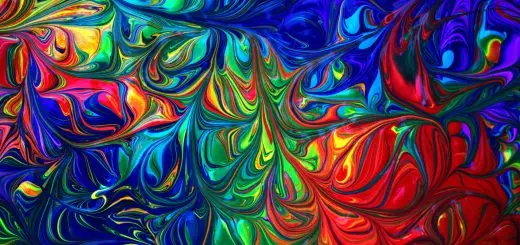Animals in Japanese Culture: Koi Fish and Their Meanings

Looking for more amazing products? Check out our online store and explore our collection here! Happy shopping!
Before diving in, please note: This post is for informational purposes only. If you’d like to know more about how we approach topics, feel free to check out our friendly Disclaimer Page.
Hey there, amazing readers! 
We’re committed to delivering quality posts, and your support (even just sticking around despite the ads) means everything to us. So, bear with us, and thanks for helping us keep the good vibes rolling. Now, on to the fun stuff!
TRANSLATE BUTTON AT THE END OF THE ARTICLE
Animals in Japanese Culture
In Japanese culture, animals hold significant symbolic meanings and are often depicted in various art forms.
One animal that stands out in Japanese culture is the koi fish.
The koi fish is revered for its beauty, strength, and perseverance, making it a popular symbol in Japanese art, folklore, and literature.
The cultural significance of animals in Japan reflects the deep connection between nature and spirituality in Japanese society.
Symbolism of Koi Fish
The koi fish is a symbol of perseverance, courage, and success in Japanese culture.
Due to its ability to swim against strong currents and leap over waterfalls, the koi fish is often associated with overcoming adversity and achieving one’s goals.
In Japanese folklore, the koi fish is believed to transform into a dragon once it successfully swims upstream, further emphasizing its symbolic meaning of transformation and growth.
Importance in Japanese Art
Koi fish are a common motif in Japanese art, especially in traditional paintings, ceramics, and tattoos.
The intricate patterns and vibrant colors of the koi fish make it a popular subject for artists seeking to capture its beauty and symbolic significance.
Koi fish are often depicted swimming gracefully in ponds or streams, symbolizing peace, harmony, and good fortune.
Koi Fish in Folklore
In Japanese folklore, koi fish are often associated with various legends and myths.
One popular folktale tells the story of a koi fish that swam upstream and transformed into a dragon, symbolizing the journey from adversity to success.
Another legend portrays the koi fish as a symbol of love and friendship, as it is believed that koi fish mate for life and are devoted partners.
Types of Koi Fish
There are several different types of koi fish, each with its unique characteristics and colors.
Some of the most common types of koi fish include Kohaku (white with red markings), Taisho Sanke (white with red and black markings), and Showa Sanshoku (black with red and white markings).
Each type of koi fish carries its symbolic meanings and is prized for its beauty and rarity.
Color Symbolism
In Japanese culture, the colors of koi fish hold symbolic meanings.
For example, red koi fish symbolize love and passion, while white koi fish represent purity and spiritual enlightenment.
Black koi fish are associated with overcoming adversity and finding inner strength, while gold koi fish symbolize wealth, prosperity, and success.
The combination of colors on a koi fish can also convey different meanings, such as balance, harmony, and unity.
Koi Fish in Japanese Gardens
Koi fish are commonly found in Japanese gardens, ponds, and water features.
The presence of koi fish in a garden is believed to bring good luck, prosperity, and positive energy.
Japanese gardens are meticulously designed to create a tranquil and harmonious environment, with koi fish adding a sense of movement and life to the landscape.
Visitors often enjoy feeding and observing the graceful movements of koi fish in Japanese gardens.
Koi Fish in Literature
Koi fish have been a recurring theme in Japanese literature, poetry, and haiku.
Writers often use koi fish as symbols of beauty, perseverance, and the cyclical nature of life.
In poetry, koi fish are often compared to cherry blossoms, symbolizing the fleeting nature of time and the beauty of impermanence.
Koi fish are also featured in folk songs and traditional storytelling, showcasing their enduring popularity in Japanese culture.
Koi Fish in Traditional Festivals
Koi fish are celebrated in various traditional festivals and ceremonies in Japan.
One such festival is Children’s Day, where families display koi fish streamers called "koinobori" to celebrate the strength and determination of children.
During the Koi Nobori Festival, colorful koi fish streamers are hung outside homes to bring good luck and prosperity to the family.
These festivals highlight the cultural significance of koi fish as symbols of strength, resilience, and good fortune.
Koi Fish as a Sign of Good Luck
Koi fish are believed to bring good luck, prosperity, and abundance to those who keep them.
In Japanese culture, koi fish are often kept in ponds or aquariums as a symbol of wealth and success.
It is believed that the presence of koi fish in a home or garden can attract positive energy, good fortune, and prosperity.
Many people also believe that owning koi fish can bring harmony and balance to one’s life, making them a popular choice for decoration and symbolism.
Koi Fish in Modern Japan
In modern Japan, koi fish continue to hold a special place in the hearts of the people.
Koi fish are widely admired for their beauty, grace, and resilience, making them a popular subject in contemporary art, fashion, and design.
Many Japanese artists and designers draw inspiration from koi fish, incorporating their unique patterns and colors into their creations.
Koi fish motifs can be seen in clothing, accessories, and home decor, reflecting their enduring popularity in Japanese culture.
Conservation of Koi Fish
Due to their cultural significance and popularity, efforts are being made to conserve and protect koi fish populations in Japan.
Conservationists work to preserve the habitats of koi fish, promote sustainable fishing practices, and raise awareness about the importance of preserving this iconic species.
By protecting koi fish and their natural environments, conservationists hope to ensure that future generations can continue to enjoy and appreciate these beautiful creatures for years to come.
Conclusion
In conclusion, koi fish hold a special place in Japanese culture, symbolizing perseverance, prosperity, and good luck.
From their symbolic meanings in art and folklore to their presence in Japanese gardens and literature, koi fish are deeply ingrained in the cultural fabric of Japan.
As a symbol of resilience and transformation, koi fish continue to inspire and captivate people around the world.
By understanding the cultural significance of koi fish, we can appreciate the beauty and symbolism they represent in Japanese society.

The Enlightenment Journey is a remarkable collection of writings authored by a distinguished group of experts in the fields of spirituality, new age, and esoteric knowledge.
This anthology features a diverse assembly of well-experienced authors who bring their profound insights and credible perspectives to the forefront.
Each contributor possesses a wealth of knowledge and wisdom, making them authorities in their respective domains.
Together, they offer readers a transformative journey into the realms of spiritual growth, self-discovery, and esoteric enlightenment.
The Enlightenment Journey is a testament to the collective expertise of these luminaries, providing readers with a rich tapestry of ideas and information to illuminate their spiritual path.
Our Diverse Expertise
While our primary focus is on spirituality and esotericism, we are equally passionate about exploring a wide range of other topics and niches 

To ensure we provide the most accurate and valuable insights, we collaborate with trusted experts in their respective domains 
Our blog originally focused on spirituality and metaphysics, but we’ve since expanded to cover a wide range of niches. Don’t worry—we continue to publish a lot of articles on spirituality! Frequently visit our blog to explore our diverse content and stay tuned for more insightful reads.
Hey there, amazing reader! 
Check out our store here and take a peek at some of our featured products below! Thanks for being awesome!














